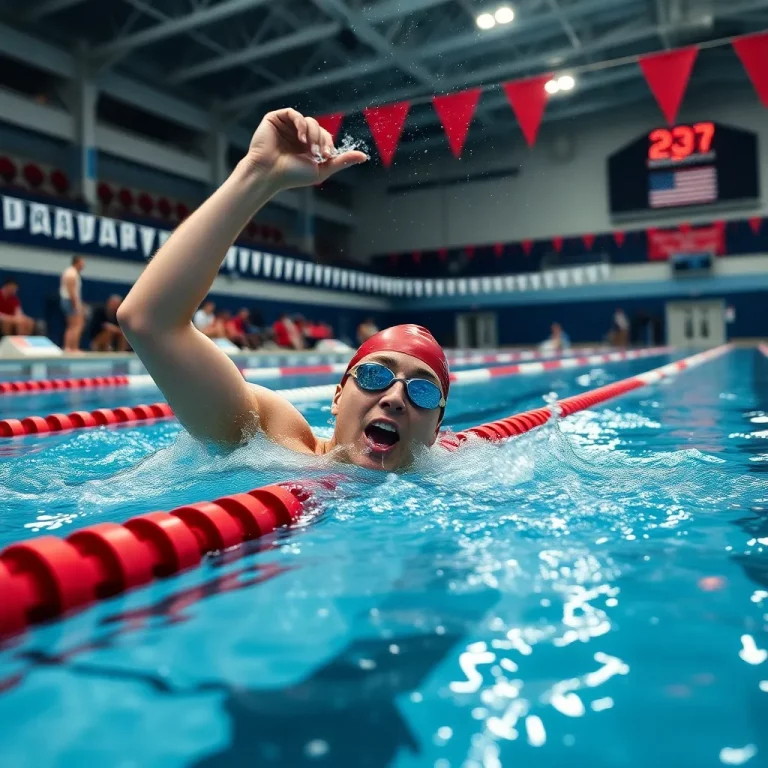Springfield, Missouri – Drury University has faced a significant setback after it was revealed that one of its swimmers tested positive for caffeine levels exceeding the NCAA’s permissible limit during the 2025 NCAA Championships held in March. Following this incident, the university announced it would vacate its men’s swimming and diving team title, which follows a championship victory earlier this year.
The positive test results have dropped Drury’s points total from 525 to below the second-place team, the University of Tampa. As of the latest updates, Tampa has not yet been officially notified of the decision regarding the championship title, leaving fans and team members in uncertainty about whether they will be elevated to national champions or if the title will remain vacant.
“While I’m disappointed for our team, I am still very proud of what we accomplished this year, both in the pool and the classroom,” said head coach Brian Reynolds, who just finished his 45th year at the helm of the program. The swimmer involved has not been publicly identified but will face a one-year suspension, losing eligibility for the upcoming season.
This situation is noteworthy, marking the first time in at least a decade that drug testing has taken place at the NCAA Division II National Championships. Caffeine, while a common stimulant, has a strict limit of 15 micrograms per milliliter set by the NCAA, which equates to an intake of about 500 milligrams within an hour for a normal adult.
Drury had showcased stellar performances, with standout athletes, including Ivan Adamchuk, clinching gold medals in multiple events. Despite this unfortunate event, Drury University remains proud of its notable history, with 12 NCAA Division II men’s championships. However, the loss of this title marks another challenging chapter for the program, which had previously vacated a runner-up finish due to recruitment violations in 2023.
As the story develops, questions linger about the future of the title and the potential shift of the championship to Tampa, highlighting the ongoing importance of compliance with NCAA regulations and the scrutiny surrounding performance-enhancing substances.


